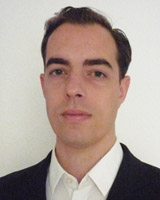Personalia
Marius Buning, born in Amsterdam, the Netherlands, 1979. Ph.D. from the European University Institute, Florence, Italy. Postdoctoral Fellow at the Max Planck Institute for the History of Science, Berlin, Germany.
Theme Group Fellow (April – June 2016)
The Innovative City. Patents and Urban Infrastructure in early modern Europe
Research Question
To what degree did early modern cities demand the production of a specific type of innovative knowledge? And what was the role of patents in this regard?
Project Description
The unprecedented growth of cities in early modern Europe gave rise a series of new demands, such as sewer systems or installations to supply clean drinking water. The development of these urban infrastructure schemes came about under the auspices of the political authorities, who often used patents as a means to promote technological innovation. A patent functioned as a hallmark showing that the authorities had given their approval for the implementation of new facilities. This research project explores the idea that the very functionality of patented technology therefore fostered a sense of compliance and so ultimately contributed to the political legitimacy of the authorities.
Selected Publications
Buning, M. “Inventing Scientific Method: The Privilege System as a Model for Scientific Knowledge-Production.” Intellectual History Review 24, no. 1 (2014): 59–70.
Buning, M. “Between Imitation and Invention. Inventor Privileges and Technological Progress in the Early Dutch Republic (c. 1585–1625).” Intellectual History Review 24, no. 3 (2014): 415–27.
